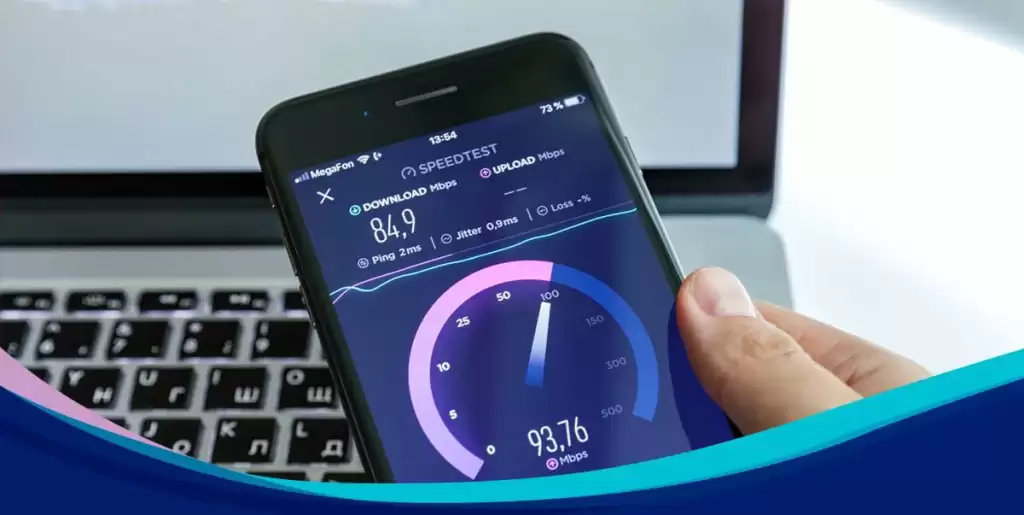In the recently released Worldwide Broadband Speed League 2024 report by Cable.co.uk, Nigeria has been ranked 7th in Sub-Saharan Africa for internet speed. This ranking is part of a comprehensive analysis that involved over 1.5 billion speed tests from around the globe, spanning a 12-month period ending June 30, 2024. The report provides a detailed overview of internet speeds in 229 countries, showcasing both global and regional trends.
Nigeria’s Global and Regional Standing
Nigeria recorded an average download speed of 27.62 Mbps, placing it 132nd globally. This is a slight improvement from its 133rd position in 2023. In the Sub-Saharan Africa region, Nigeria’s 7th place ranking highlights the ongoing challenges and efforts needed to improve internet infrastructure and accessibility.
The top-performing country in Sub-Saharan Africa is Réunion, with an impressive average download speed of 63.29 Mbps. Following closely are South Africa (42.42 Mbps), Eswatini (37.23 Mbps), Rwanda (32.69 Mbps), Mauritius (31.12 Mbps), and Botswana (29.52 Mbps). These countries have set benchmarks that Nigeria aspires to reach as it continues to enhance its digital infrastructure.
Global Context and Comparisons
Globally, countries with the fastest internet speeds are primarily located in Europe and parts of Asia. Iceland tops the list with an astounding average speed of 279.55 Mbps, moving up from fourth place last year. This remarkable speed is attributed to Iceland’s extensive full-fiber penetration, providing at least 100 Mbps to 99.9% of its population.
Following Iceland, Jersey, which pioneered making pure fiber available to every broadband user, boasts an average speed of 273.51 Mbps. Macau maintains its third-place position with 234.74 Mbps, while Liechtenstein, where 99% of the population are internet users, holds the fourth spot with 222.98 Mbps. Denmark rounds out the top five with an average speed of 210.51 Mbps.
Regional Averages and Insights
The report also offers a detailed analysis of internet speeds across various global regions. Western Europe leads with an average speed of 141.12 Mbps, driven by high-performing countries like Iceland, Jersey, and Liechtenstein. The Baltics, with an average speed of 106.45 Mbps, also show strong performance, with Estonia, Lithuania, and Latvia all featuring in the top 50.
Northern America, with an average speed of 104.18 Mbps, sees the United States and Canada at the forefront. Meanwhile, regions like the Near East (50.27 Mbps) and Central America (41.39 Mbps) display moderate performance. Sub-Saharan Africa, with an average speed of 14.99 Mbps, is the second slowest region globally, ahead of only Northern Africa, which averages 12.52 Mbps. This highlights the significant disparity in internet speeds and the ongoing challenges faced by many African nations in upgrading their digital infrastructure.

SEE ALSO: Africa’s Internet Crisis: What Happened and Why it Matters
Detailed Analysis of Nigeria’s Broadband Performance
Editor’s Choice
Nigeria’s average broadband speed of 27.62 Mbps, while showing improvement, underscores the broader challenges of internet connectivity in the region. With 163,703 unique IPs tested and a total of 3,007,669 tests conducted, the data reflects a growing but still nascent digital infrastructure.
Downloading a 5GB movie in Nigeria would take approximately 12 hours and 24 minutes, a stark contrast to the mere minutes it would take in top-ranking countries. This slow internet speed impacts not only individual users but also businesses and educational institutions that rely heavily on the internet for daily operations.
The Importance of Improved Internet Speed
Faster and more reliable internet is crucial for Nigeria’s economic growth, as digital connectivity plays a key role in various sectors, including finance, healthcare, education, and entertainment. The report emphasizes the importance of continued investment in broadband infrastructure to bridge the digital divide.
For Nigeria to improve its ranking, significant efforts from both the government and private sector are essential. Initiatives to expand fiber optic networks, enhance mobile broadband services, and increase the affordability of internet access are critical steps towards achieving this goal.
Looking Forward
While Nigeria’s improved ranking in the 2024 Worldwide Broadband Speed League is a positive sign, there is still much work to be done to match the speeds enjoyed by top-performing countries. Addressing infrastructural challenges and investing in digital technologies will be key for Nigeria to enhance its internet speeds, foster economic development, and improve the quality of life for its citizens.
The journey towards faster internet speeds in Nigeria is ongoing, and the commitment to building a robust digital infrastructure will play a pivotal role in the nation’s future growth and development.



